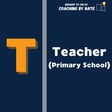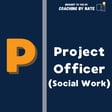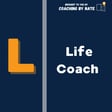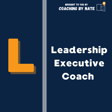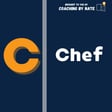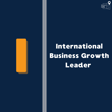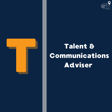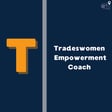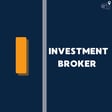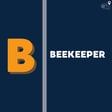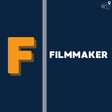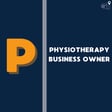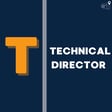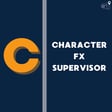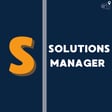Become a Creator today!Start creating today - Share your story with the world!
Start for free
00:00:00
00:00:01

Nutrionist: Meet Lauren A Post Partum Nutrionist, HR Exec & full-time mum
In this episode we introduce you to Lauren, who shows us you can build a life from multiple roles, to achieve a balance in your life and to chase your passion. We find out all about how she is building a business at the same time as being a part-time Exec HR and full-time mum.
See all show notes on our website
https://www.thecareerchangecoaches.com/
Transcript
Introduction to A to Z Jobs Podcast
00:00:05
Speaker
Welcome to A to Z Jobs, the podcast that delves into the fascinating world of careers one profession at a time. In each episode, we'll deep dive into a specific profession, exploring its history, requirements, challenges, and rewards. So get ready to expand your horizons, challenge your perceptions, and discover a world of possibilities. I'm Roxy. And I'm Nate. And we're excited to host you on this journey.
Meet Lauren: The Multifaceted Professional
00:00:28
Speaker
In this episode, we introduce you to Lauren, who shows us you can build a life from multiple roles to achieve a balance in your life and to chase your passion. We find out how she's building a business at the same time as being a part-time executive HR and a full-time mom. Hello and welcome to our podcast. Thank you very much. Happy to be here. Brilliant. Let's dive straight in, like I like to say at the beginning of every episode at the moment and find out what you do for a living.
00:00:57
Speaker
Yes, so I wear three distinct hats actually. I am an executive HR manager in Sydney. I am a full-time mom and I am also a postpartum nutritionist. So I guess, although the careers seem kind of incredibly diverse, I guess I'm really blessed to have two distinct careers that both drive my passion for enabling people to thrive.
00:01:27
Speaker
Wow, that's brilliant. And at the end of it, you know, full time mum. That's amazing. I can't wait to dive into all of this and ask you a million questions. Absolutely. How does that split work then? Talk us through what is day to day with all these different hats and all these different pies.
Diving into HR Leadership Role
00:01:51
Speaker
Yeah, yeah, absolutely. So I guess, as you'd imagine, my days are pretty varied. So I have two distinct days a week where I wear my HR hat. And that hat is, you know, I am, my partner is primary carer of our child on those days. I am in the office. I'm leading teams. And I guess kind of shaping the future of an organization through its people.
00:02:16
Speaker
And then the other five days, I am a bit more of a juggle. So I do on the other five days, I guess I'm, you know, live and breathe family, health and nutrition.
Nutrition Business Ventures
00:02:30
Speaker
So when Bubba's sleeping, which I will say is not that often, I am working on my two nutrition businesses. So I've got Fuel Your Life Nutrition, and I've got the Postpartum Project, who the latter actually is co-founded with Lou Barter, who was recently on your podcast. So I kind of spend my days helping moms build the confidence and skills they need to fuel themselves and fuel their families.
00:02:57
Speaker
So I guess, you know, it's really around putting out research and information and coaching mums to give them the skills that they need to eat well. And particularly important, helping them understand why good nutrition is one of the greatest gifts that they can give their kids. I think I really need you in my life right now. One year old.
00:03:26
Speaker
You always come last as a mum, I don't know. Absolutely. Absolutely. Yeah. And I think research kind of tells us that
00:03:36
Speaker
Mums, even more so than any other primary caregiver, are the greatest model, role model for their kids. And so if we, you know, kind of eat well and show them how to eat well, that's going to have the greatest impact on them in the future. So, yes, it is definitely a juggle between making sure that we look after ourselves and, you know, and therefore, I suppose, you know, look after our children in
00:04:01
Speaker
That's brilliant. My son is currently shoveling Nocky into his mouth. He feels quiet during the podcast. He's got spinach and all sorts with it. How do you, Lauren, just to jump in. Both Rox and I have worked in the HR field and it's one of those jobs that can, if you let it, becomes very consuming. How are you managing to go, no, that's my two days and then I've got my energy over here. How are you doing that distinction?
00:04:31
Speaker
It is challenging, actually. And I would say that I don't get it right all of the time. I think I, you know, I will say I'm very fortunate to have a great degree of flexibility across both
Balancing Roles and Setting Boundaries
00:04:49
Speaker
of my careers.
00:04:50
Speaker
I am able to blend them a little bit, but I will say that on the days where I'm kind of blending HR and nutrition and motherhood, they are the days that remind me to keep my boundaries. And I think, you know, in work, a lot of us struggle to keep our personal boundaries. And I do try and make that a priority because unless that's a priority, then I don't do anything well.
00:05:19
Speaker
It's such a hard line and you've got to try and set those rules really strict. And then if you miss on one, it's a balancing game constantly, right? So yeah, I don't know how you do it. Discipline. I will say more than anything at all, it is, it's discipline to know when to hold strong to your personal boundaries. And I think now that Barb is here, it's even more so important, you know, to
00:05:50
Speaker
do, you know, to keep those boundaries so that I can be a good and a present mum, a good and a present HR manager, and a good and a present, you know, nutritionist, because all of the people, all of my stakeholders deserve
Career Shift and Passion for Nutrition
00:06:04
Speaker
that. And I do too. Yeah, definitely. And it probably your 100% in all of those things, you know, even your 80%, it's probably better than 100% in most cases.
00:06:17
Speaker
So how did you get started in each profession? Well, obviously it's a mum. This is a little bit of a long and windy, a lot longer windy tail, I guess. So if I kind of think all the way back, I started in recruitment. And I started in recruitment because I didn't really know what I wanted to do. And so I was not instead of kind of racing off to do any degree.
00:06:45
Speaker
I raced off to the workforce straight from school rather than going to university. So what that led to was a career in recruitment, which over time was really fantastic because it meant that when I went back to university to retrain as a HR specialist, I was very sure of what I wanted to do. And so then it was through my work in organizational psychology that I found this really deep fascination for the human mind.
00:07:16
Speaker
And so at 34, when I came home and announced to my parents, or I was not living at home, I announced to my parents, hey, I want to give up full-time work in a perfectly good job, in a really, really good HR job, really reputable company. I want to go back to university and do a degree in medical science and neuroscience, and I want to become a doctor. And they went, wow, what? Sorry.
00:07:42
Speaker
I had every intention to become a doctor. So I went back to uni. I studied medical science and neuroscience. But what I realized along the way is that medicine is all about treating disease rather than preventing it.
00:08:00
Speaker
Um, and I felt that, you know, my world or my passion was more around disease prevention rather than, um, just the treatment of disease when people are already ill, which kind of meant that I sort of write what, what is there for me in this space where I'm working with people in health and, um, disease prevention. And then that led me to nutrition. Wow. And.
00:08:24
Speaker
You know, so then alongside my medical science studies, I then retrained as a postpartum nutritionist. And I think postpartum specifically because I think that, you know, that disease prevention kind of starts in childhood and as parents and particularly as moms, like I was talking about before, we are the greatest role models for our children. So if we can learn to eat well and we can learn to fuel our families well, then they will only thrive as a result.
00:08:54
Speaker
Oh, that's such a brilliant way. Yeah. It's such a brilliant way of thinking because you're going to the source, not the end and helping people from there onwards, even with the beginning of babies. Wow.
00:09:12
Speaker
I just wanted to look back. You mentioned, so you were 34 and you're like, this is, I know this is what I need to do. You had that conversation with friends and family and you took the dive. At what point was there any key moments or was there any, I love this stuff. Like how do you know that within yourself that you're confident enough to do this and this is the right time and this is what I need to be doing? I was none of the above.
00:09:41
Speaker
I was not confident. I didn't know it was what I needed to be doing. To be honest, I had, I had sat on it for about five or six years. And I thought, you know,
00:09:55
Speaker
I had this deep fascination for the human mind and for neuroscience and then, you know, which kind of led to medical science, but I'd sat on this, this notion for about five or six years. And in the end, what I thought was if I don't do it, it's kind of, it got to a now or never. And I thought, if I don't, if I don't take the leap, then a career, you know, then I will look back on a very reasonable career in HR.
00:10:21
Speaker
at the end of, you know, at the end of my career, I will look back on, you know, a really, a really reasonable career, but it was not necessarily one that was going to really fuel and drive or aligned with my core values, I guess. And so I kind of, I, I leapt into the abyss rather than feeling at all confident about it. Um, yeah, because I think at 34, you know, there's this notion of, well, you should kind of be set up by now.
00:10:51
Speaker
You should be on your career trajectory. And I was on that career trajectory and just decided, nope, I'm going to turn it all on its head and here we are. And I will say that it's all paid off and I'm incredibly, incredibly happy with the result or where I'm at at the moment.
00:11:13
Speaker
That's brilliant. That's really inspiring.
Career Advice: Embracing Life's Paths
00:11:16
Speaker
You know, I turned 31 on Monday and I keep thinking there are all these things I need to do. There's all these projects, they're all on my wall. And I've been talking about them for eight years now. I know, it's brilliant. Thank you. The other sort of aspect of it is like,
00:11:37
Speaker
One of our questions is, is there an easier path? I mean, well, yes, we've gone straight out of high school to study medicine, but there's always that journey you have to be on to get to the point where you're ready to do it. So many people leave school, jump into university, study the wrong thing, build the wrong career, then have to start again. So I suppose to you, I mean,
00:12:03
Speaker
If you were, if you could give advice to yourself, is there any way that you could have started or was there something you wish you had known earlier? I think the thing that I, do you know what, I guess, I think that I will say that yes, as you said, there was an easier path. There would have been a more straightforward path. Um, but I will say that where I was at each life stage, I wouldn't have succeeded until now on that path until now. I wasn't.
00:12:33
Speaker
ready for it. I don't think that, you know, in terms of my education, I didn't really thrive in education until my mid 30s. I was not, you know, I was not somebody who was particularly academically minded at school. So I never would have, I never would have been successful in university and particularly within medicine, I wouldn't, and neuroscience, I would not have been successful earlier. So for me, this was the best path.
00:13:03
Speaker
But I think to really answer the question about the advice, I think there's probably two things. And the first thing is that you are more capable than what you currently know.
00:13:15
Speaker
So I think if I take myself back to where I first started, I think, you know, you are nowhere near your full potential. And so keep, you know, you don't know everything, but you can learn anything at all that you put your mind to with the right commitment and the right resolve. So never ever be afraid to try something new.
00:13:36
Speaker
It's amazing. And I think the second thing is that, you know, big ideas are really good, but they're really just ideas. Um, and I think, you know, cause I, I'm somebody, I've got quite an entrepreneurial mindset. So I've got all of these great ideas all of the time. A little, you know, little like all of your projects on the wall, you know, but I think it's really, you know, the dedication and commitment that you have to doing the small kind of boring and really important things every day.
00:14:02
Speaker
That's going to see you change the world and be successful, not the big idea. So they're probably the two things that I would think of when I think about advice. I highly agree with you there with my five or six failed ones. You just have to have that commitment.
00:14:20
Speaker
Yeah, as I say, well, commitment and accountability. I think Roxy and I are very similar people where we get the big ideas and we start spinning. We go in all directions, but we've managed to find a happy medium and we keep each other accountable and on track. So I think a lot of the time it's harnessing the idea and making sure you've got the support network around you to make it happen.
00:14:43
Speaker
A very good theme that comes out of every single one of our podcasts is the core values puzzle. It's these things that you have to do to get to a certain point in your life where it's like a Eureka point where you can see the full picture and you know what it means to you because when you're 18 or 21 or even 27
00:15:05
Speaker
You're still working it all out. And we've talked to people who in their 40s now are actually going, you know what? This isn't my final career. What's your final career? What are you working out from there? And he's probably going to have five or six careers before that.
00:15:22
Speaker
You know, I just love that about kind of the way that business has evolved, to be honest, to give us permission to not just have one passion or not just one career or God forbid if the career that you chose, you know, as your university degree at 18 or 17 is what you're going to, is what you committed to for the next 50 years. I mean, I love that we are now in a world where we're able to
00:15:51
Speaker
consider different options at any life stage. Yeah. And learn different options in so many different avenues. There's so much available to you that I think if I went back, I'd be completely overwhelmed now, but. Yeah. No, it is overwhelming. It's worth it. It is. Yeah, it's exciting. Yeah. So what are the favorite things about your three jobs?
00:16:20
Speaker
Yes, so I think so maybe.
00:16:23
Speaker
Um, it's how much I get to learn. And, you know, I, I'm kind of, I guess, and I particularly think about this in the context of my postpartum nutrition, um, business is I am completely obsessed with bringing knowledge to moms. And I think that world, I was really thinking about this question. I thought, you know what, that world is, is probably where I want to answer this question because the world of postpartum nutrition is relatively untapped. There isn't a lot of research.
00:16:53
Speaker
And I think that mums are still relatively unaware of the great impact that their eating habits have on their kids. And so, you know, that body of research is growing quickly and I kind of love that I'm able to be at the forefront of that. And I can share this new information, you know, knowledge and insights with mums and
00:17:13
Speaker
I guess it brings me a lot of joy that my work can help new mums feel just a little bit more confident in their new role and the choices that they're making for them and their families. And then I think in, you know, across all of them, there is this theme of just wanting to
00:17:32
Speaker
help and support people to reach their full potential and to enable, you know, kind of them. And then, you know, I guess in the ripple effect, you know, them and their families to thrive. And that's both through, you know, creating kind of engaging in positive company cultures within HR and then also working directly with, you know, mums on creating intergenerational health. That's brilliant.
00:17:58
Speaker
It's so, well both things are very, very important. The culture of an organization, it can change in a heartbeat in some situations. So HR department is so important for that and the structure on that. And then as the first time mom, myself, the food aspect of it, the hormone aspect of it, the new body that I'm in and it's changed. It's weird. It's something I struggle with on a daily.
00:18:22
Speaker
basis. I'll put my hand up. I went to the doctor last week and he said, look, you're just not looking after yourself enough. And that's what the issue is. You know, you're not focusing on you. You need to be focusing on not just Rory, the baby. So they're all so important. And it's amazing that that's what you're passionate about. And that's your favorite thing. And that's what you move forward with helping people.
00:18:49
Speaker
Yes. Yeah. Fundamentally that, that is, and yeah, that is exactly what it is. Yeah. And how are you doing? So you mentioned that like the communication and like that knowledge sharing, how, yeah, how are you doing that? How are you finding, how are you engaging with them? Is it sort of online platforms or it's more face to face? Uh, yeah, so it's, it's both. Um, I would say that the platform is most definitely more online.
00:19:14
Speaker
these days, I think, and certainly it's the way that I think people like to engage. It's relatively few face-to-face engagements these days. And I think, you know, with the right kind of, I mean, social media is such a marvellous tool to be able to reach the masses and kind of share that information, I think.
00:19:37
Speaker
So between that and my kind of growing network of mums through bringing like-minded mums together through Facebook communities and so forth, that's generally where I see the most reach, yep.
00:20:01
Speaker
Are you feeling inspired by everything you've learned so far? Keep that momentum going with our four-part Career Change Made Easy course. Dive deeper at thecareerchangecoaches.com. Now enjoy the rest of the podcast.
00:20:16
Speaker
knowing people like Lou who run her mom did redefined fitness courses and networking.
Building Community for Moms
00:20:23
Speaker
It's a really key theme as well through our podcast and building those networks, getting to know people, reaching out, putting yourself out there and finding younger people. Yeah, that's exactly right. I talk a lot and Lou and I talk a lot about finding your tribe and finding, bringing together
00:20:44
Speaker
like-minded mums and you know who have got similar interests similar common goals and there is a lot of work and you do need to put yourself out there quite a lot to to do that but I think when you tap into those those people then it's incredibly rewarding. So we've touched on all the positives uh what about the negatives what do we what do we have happening well that that is a bit of a struggle
00:21:09
Speaker
And I do know what we're almost talking about it now is that the marketing and the putting yourself out there. I think that I know with what I do and particularly within the nutrition space what I want to do in terms of bringing that knowledge to moms on that intergenerational health. I need to put myself out there. I need to do the marketing.
00:21:35
Speaker
But I tell you, if I had a choice, I would spend my time, you know, researching, creating that really valuable content for mums. And full disclosure, I am less passionate about what I need to do to kind of connect that content with the right audience, because it's really hard, really hard.
00:21:54
Speaker
You know, I know if you have a look at, gosh, if you have a look, for example, my Instagram page, it is aesthetically terrible. And fortunately, I know people like Lou, you were talking about networking, who is our postpartum project's Instagram page, which is our collaboration, is much more aesthetically pleasing because she's helping to coach me. So I'm learning, but things like that. I, you know, honestly, I had no idea about, but they are really important parts of the job as well.
00:22:23
Speaker
There are a lot of rabbit holes you can go down.
00:22:29
Speaker
Funnel. Honestly, I was looking at a webpage on sales funnels the other day, only because I had lunch with my brother and he said, oh, do you know, what about, you know, what, what are your funnels? I'm like, what are you talking about funnels? And then all of a sudden I was on this, you know, YouTube talking about sales funnels going, oh my God. I think I need to go back to university just to learn about online marketing.
00:22:57
Speaker
Then you go down the path of looking at, oh, how can I automate things with AI? What's out a week of time? Just watch a bunch of videos you could have been making content. They're probably fantastic tools when you know how to utilize them properly, but then us mere mortals have to spend all of our time figuring out how to use them.
00:23:22
Speaker
watching about 10 YouTube tutorials to see how it actually applies to you. It is like, it is, it is a maze. It is a, you know, it's very complex. Yeah. It's a huge, huge, it's something I've, I freaked Nathan out to begin with. Cause I think I spent the last five years listening to podcasts from
00:23:46
Speaker
Pat Flynn to Marie Forleo to Amy Porterfield and all of these, how to get an email list and what a funnel is and all this stuff that lead magnets and you could just keep going and going and going. I will say though, Pat Flynn is my favorite. He is amazing. He does a build your own brand course. It's completely free. He shows you how to do everything from building a website to creating a mailing list.
00:24:14
Speaker
I feel like I definitely need Pat finding my life in. It's pretty good to get you started, get you excited, talks a lot about Back to the Future. Fantastic.
00:24:27
Speaker
Yeah, but you know, you got to find your guru in that sense and just maybe stick to one and just not get stuck. But it is one of the worst things because you just, it's time consuming. You're learning a lot. There's a lot of tools. There is a lot of tools that do the same thing and it can be expensive as well. Yes, absolutely.
00:24:49
Speaker
So if you could give any advice to anybody wanting to start off maybe in the nutrition field, because it sounds like that's the one that you're the most passionate about. Yeah. What would you give them? So I guess what I said before, you know, about big ideas, you know, those those kind of big ideas being really good. Because I think every, you know, if somebody's starting out in
00:25:16
Speaker
nutrition and dietetics, unless you want to work in clinical dietetics, which is in the hospital space, then you're generally going to be working with the general population. And so I think the important thing is that there's a lot of technical
00:25:36
Speaker
There's a lot of technical knowledge in nutrition and dietetics when you kind of lift the lid on it. It can be very complicated. So I think a couple of key things is that the first thing is have your, you know, get your big ideas and distill them. Distill them into something that the general population can understand and distill them into something that the general population, that is a genuine need for the general population rather than just perhaps an interesting
00:26:05
Speaker
topic for you as a nutrition and dietetics professional.
00:26:10
Speaker
Um, but the second thing I think that is really important is around that dedication and commitment to doing the small things day in, day out. You know, we talked about, you know, if you want to reach people, you've got a, you know, you've got insights and information that perhaps doesn't currently exist within that general population. It's not so easy as to just say, great, I've got this really interesting information. Everybody come and listen to me now. Otherwise we would all be really successful social media influences.
00:26:37
Speaker
But, you know, it really is about doing those small things and perhaps the things that you don't particularly enjoy every day, kind of in favor of enabling your successful, you know, the outcome that you're looking for. Yeah, definitely. So also thinking about your HI side, what industry are you in in HR? Because that's something that's really interesting. It can be anything. Yeah. And so I'm in the finance industry.
00:27:07
Speaker
Okay. Yeah. Yeah. And I think that it's a really interesting kind of turn of events that when I decided to change my career is that I found the HR job that I was looking for all along. It was such an interesting, you know, it was such a stroke of luck. So although I've had the opportunity to move away from from HR and
00:27:34
Speaker
invest my time full-time into nutrition. I've elected to retain both because I find the role that I have in the company that I work for so incredibly fulfilling that I wouldn't want to move away from it. So it's such an interesting turn of events that when I stopped looking for the perfect job, there it was. The universe said go. Yeah, exactly right. Yeah.
00:28:01
Speaker
a very very similar thing happened to me. I went from artist management to recruitment and it was all because I kind of got kicked out of my apartment in Sydney. You know the rent went up and my job wanted me to stay in the studio and I couldn't so I looked for a remote role and now I have a brilliant and more flexible role that you know it just worked.
00:28:24
Speaker
Yeah, and it is sometimes all about timing, isn't it? Yeah, yeah, it's good. Timing and also mindset being open, like these opportunities may have been popping up before, but you weren't.
00:28:38
Speaker
weren't getting kicked out of your apartment so you didn't notice these opportunities before so it's being open and ready for these these moments pop up as well I think. Yeah you're kind of standing on the ledge ready to go whereas before it's like oh but if I do that there's a lot more work starting a new job.
Purpose-Driven Educational Journey
00:29:01
Speaker
And then for education, this is quite a big question for you because there's the different paths and there's the different pathways. So, Ollie, we're open to you. What education do you want to talk about? Any advice you'd give in terms of education?
00:29:16
Speaker
Yeah, absolutely. So I think, you know, for me, and everyone will have a different perspective on, you know, do I go to university straight from school? Do I go to TAFE and get a vocation? Do I do an apprenticeship? There are so many different options. And, you know, like we touched on before, I have had not had a straightforward, you know, career path and certainly not a, you know, a straightforward education path.
00:29:47
Speaker
Um, but for me, it was the one that worked. I don't, I don't see, you know, a, a more straightforward education pathway being successful for me. Um, so if I, I guess the, I started off with, um, actually started off with TAFE with a, in a certificate with in business, in business in, uh, oh, let me start that one again. I did a certificate in business administration straight from school at TAFE, which
00:30:16
Speaker
was honestly a phenomenal start and I think people this is this massive focus on going to university but having a TAFE qualification under my under my belt meant that I had something to then take into the workforce and really then understand it'll be able to explore the the workforce and get an understanding of work life without feeling the need to go on and do tertiary education straight away.
00:30:39
Speaker
So I was 25 when I went back and did a master of commerce majoring in HR and industrial relations. And so the work experience actually really worked in my favor because I went straight into the master's program.
00:30:53
Speaker
with five years of work experience, five years of relevant work experience being a substitute for the bachelor degree. So I was actually, I did a two and a half year part-time degree whilst working full-time and came out of it at 27 with a master's degree, which was a fantastic outcome.
00:31:15
Speaker
Um, and then, you know, and then again, at, um, you know, at 34, I went back into the bachelor of medical science and alongside that did my nutrition and postpartum nutrition, um, certifications. And so I think for me, the thing that the key takeaways is that none of my education was checked the box. There was always a purpose for it. And I, and it was always a, you know, a purpose that was, um,
00:31:41
Speaker
Very clear to me, it wasn't a, all my parents think that I should go to university. Well, you know, my family is in medicine and therefore I should be in medicine. I was very clear on why I was going to university and what the outcome that I was looking for was.
00:31:58
Speaker
And I think because I was very clear on that and because I was very interested in the subject matter, that led to a profound love of learning that I never ever would have known existed otherwise. And I think that, you know, that love of learning meant that I was intrinsically motivated to do really well at university. And I know that can be a struggle for people. And
00:32:23
Speaker
It was that love of learning and then the outcome being really quite a great deal of success at university because of that intrinsic motivation that has led to a development of confidence in academia and my own ability that has served me well beyond the piece of paper that I got as a result of studying. That's amazing.
00:32:49
Speaker
Yeah, ticking all the boxes, you're doing what matters at the right time and then appreciating it more, which is amazing. Can I ask though, after starting in HR and having that experience, why did you go and do the Masters?
00:33:06
Speaker
Um, because I didn't, at that point, it became important to have a university education to further my career. So I was still, so I was working in recruitment at that time and I knew that I wanted to move into generalist HR and in particular into HR leadership. And to do that, I needed that tertiary qualification. Yeah, definitely.
00:33:29
Speaker
I've been in that stage in my life, that's why I asked. I did a diploma at RE just to sort of top it up a little bit, but I've always been on that fence of, do I do a degree to be able to have more options in my career versus recruitment and HR and artist management's a whole different thing in the film industry. We can talk back for ages, but yeah.
00:33:52
Speaker
um but no it's really interesting it's a top-up it's a help for you to kind of get a different career you know and also move your career forward as well whereas a lot of careers get to a dead end in some cases and people won't make that next step yes that's awesome i think it's also important just to reinforce the purpose there because you had the drive and that you had the purpose for doing it not just to box like
00:34:18
Speaker
I don't want to use signing up for a university degree and if you're hiring, don't do it. You need to make sure it's your purpose. I'm not anymore. But me three years ago was like, I've got to do this. And I, you know, I called up Eunice to be like, does my CV match? Can I go straight into a master's? But because I work in the film industry, the HR role
00:34:41
Speaker
was not quite Nathan's HRO because we had split responsibilities, essentially. So for me, it was like, no, you can't actually do, you have to start from the BA and go into the master's, even though, you know, word for word, the job description. But yeah, don't worry, Nathan, they're not off there.
00:35:04
Speaker
I actually really enjoy recruitment. I've gone back into that and I love talking to people, so it's yeah. I was just thinking, you know, as you were talking about, you know, check the box and transferring different skill sets. I think the other thing that I've just thought of, which I think was really interesting to me at the time,
00:35:31
Speaker
was when I decided to go back and do the Bachelor of Medical Science. I was not mathematical or scientific at all at school. I did not even do them as electives in my senior schooling.
00:35:49
Speaker
And so when I rang the universities and said, oh, look, you know, I kind of want to do this, but I have absolutely no skills in this area. And I know that science and maths and biology, physics are all really important. And I've never even, I've never done them, but any chance. I'm a mature age student, so I'll work really hard. You know, I know this is where I want to be. And I said, send through your school transcripts. Now this is bearing in mind.
00:36:17
Speaker
16 years after I finished school, they said send through your school transcript. And I did music and drama and I did quite well in music and they rang me and they said, yes, we will definitely send your application in. And I had to be a little bit strategic about when I had to do a mid-year application because otherwise at the end of year, I'd be competing with all of the school leavers that have the really high HSC results.
00:36:46
Speaker
But what they said was that because that music, there are patterns in music that you need to be able to recognize. And if you do well in music, then you are more likely there's a probability that you're going to have an affinity for mathematics because you have to have spot patterns as well. And you have to be able to read different patterns that are not, you know, English, um,
00:37:08
Speaker
letters and numbers. And so I guess I say that because I would hate anybody to think that there are limitations based on, you know, just because I haven't done this doesn't mean that you're not capable of it. And I think that's probably a really good example of, you know, of transferable skills that I don't think people would ever, you know, kind of link together unless somebody told them about them.
00:37:31
Speaker
Oh, I had no clue about that. And it's also, I think also the, um, the, uh, the being proactive, like, you've got your purpose, so you know what you need to be doing. You've got, you've, you've found the hurdle, but you've, you've, you've reached out, you've asked for help. You've got advice. So it's not just looking at like a job description and going, nah, I don't tick that one box. Not going to do it. Like there's ways around things. You just need to talk to people. Yes. Yes.
00:38:00
Speaker
It's the one thing I think I've helped any of my friends with because I'm the kind of person that if I do set my mind on something, I also have to ask why it didn't work out. So a job application, even as a recruiter, I encourage the candidate to sort of get some feedback out of me even from the beginning. My husband applying for a job a couple of months ago, I almost forced him to pick up the phone to be like, well, what was it?
00:38:28
Speaker
because he's a fully qualified mechanic everything fit like this is a lower level job it's a different career and it just turned out that they thought he would just want more money you know so it was it's just yeah so you don't know why someone might have rejected that application but to actually pick up the phone and ask not many people do it anymore it's this stinking out of the box situation of how you apply for a job or how you get involved with a job or who you talk to or
00:38:57
Speaker
Seeing an advert in the newspaper, a friend of mine found one in a local newspaper the other day and she messaged the lady. It's about location scouting and she missed the workshop altogether. And I said to her, just email, email the lady. She went, no, no, I can't do that. And I said, well, here's her number. Cause I found it on my recruitment. There's a little software I've got that looks up people's emails, the phone number.
00:39:20
Speaker
So she gave her a call and she's got the job, but it's just that out of the box. You know, she's just going to do something new, you know, the timing didn't line up. She couldn't go to the workshop. She's a mature student compared to what the location scout was looking for. And that's that. That's amazing. Yeah. I am curious, so how long was your science degree?
00:39:43
Speaker
Um, it took me four years. Okay. And is that part time or? No, that was full time. Full time. Awesome. Yeah. Are you doing that as well as working at the time or? Yeah. So I look, I'm full disclosure, a little bit of an overachiever. So I somehow, and it's one of those things, you kind of do it in the moment and then in hindsight, you think, how
00:40:04
Speaker
Do that. Yes, but I was working, I know I was working part time and then studying full-time and then in the holidays I was doing my postpartum nutrition or my nutrition and then postpartum nutrition certifications.
00:40:19
Speaker
Wow. That's brilliant. And it's amazing that you also found your niche in that sense of science and I love that it's at the beginning of everything. It's almost like the beginning of life. Yes. I hadn't thought of it that way. That's great. It's awesome. Can you smoke it for your sales funnel? Let's start right at the beginning of life.
00:40:45
Speaker
Which gets me into the next question pretty well, actually. What is an inspirational quote that's inspired you and kept you going?
Inspirational Quotes and Resources
00:40:57
Speaker
There are two, and one I think is one that probably people have heard before and one maybe not. So I think the one that perhaps people may not be so familiar with, but from a very incredibly famous inspirational man by Nelson Mandela.
00:41:15
Speaker
is education is the most powerful weapon with which you can change the world. I love that one. And then the second one, which is dear to my heart, because I'm saying yes to everything and just kind of figuring it out all, you know, as I go, is a Richard Branson quote, which is, if somebody offers you an amazing opportunity, but you're not sure you can do it, say yes and learn how to do it later.
00:41:40
Speaker
It's amazing. They're both, both people I love. The Nelson Mingwella quotes is on my wall because I'm South African. It's one of the quotes that are there. Amazing. Amazing. Yeah. No, it is brilliant. I think there's not enough people that actually do say yes to something and just make it, wing it, go for it. You know, freak out at your husband, freak out at your friends.
00:42:10
Speaker
Yeah, I know, you know, and that one resonates my first, so my first HR job I was hired as an internal recruiter. And whilst I was off in, I was in South America, during my period of, you know, kind of between between jobs and
00:42:29
Speaker
I, and the HR manager, resigned during that time. And I said, oh, that's fine. You know, I'll just recruit a new HR manager. And I walked in on, on day one, they said, could you write this job description? And on day two, they said, do you want the job? And I went, sure, sure. Let's figure it out. Yeah. And so that, so since, since that day, that, and that was, um, about 50, no, yeah, about 15 years ago.
00:42:57
Speaker
That Richard Branson quote really resonates with me. It's brilliant. That's amazing. But that's the thing. I think most people actually, you go to uni, but you'll never learn exactly what you're doing in your job. It's only now that like,
00:43:14
Speaker
The only example I can probably come up with is in the visual effects industry and artists goes and does a masters and they recreate a studio but even the studios are very different and even the artists cultures are very different and the type of work they're working on so you no matter what every job you go into you've got a six to twelve week period where you're learning you're learning how the whole new job works in an HR environment you're learning how the whole new industry works you know you're
00:43:41
Speaker
any degree could help you a little bit towards it, but having the, you know, gumption to keep going and keep saying yes and keep moving forward is amazing. Yes, absolutely. Thank you. You're completely right. That's brilliant. My last question, and Nathan might have another one after this one, is just for the moms out there listening like me and how I would get involved with getting to know you and let's help plug you and put you on Instagram.
00:44:11
Speaker
How do we get in touch with you as a nutritionist and how does that work? Yes, absolutely. So you can get in touch with me through, so my website is fuelyourlifenutrition.com. And then also on Instagram, I am the underscore postpartum underscore nutritionist.
00:44:32
Speaker
And, um, I think finally my collaboration with Lou Barta, who is our, um, uh, you know, mum safe personal trainer is the dot postpartum project. Brilliant. That's brilliant. Did you get to know her through the same course that she did or like, how did you meet Lou? No, so her and I know each other through a mutual friend.
00:44:56
Speaker
And we decided, you know, I said to our mutual friend, oh, I think I really want to, you know, specialise, I know I'm a nutritionist, but I really want to specialise in postpartum nutrition. And she went, oh, you know, Lou, she's a postpartum, she's a specialist postpartum trainer. And so I was just about to have my baby, you know, maybe I was 34, 35 weeks pregnant, and Lou reached out to me and said, hey, I know it's not the right time right at this moment, but
00:45:24
Speaker
you know, when you've had the baby and you're ready, let's have a conversation. And we kind of wanted, we both wanted the same thing in to bring, you know, to bring nutrition and, you know, specialist nutrition knowledge and specialist fitness knowledge in the context of postpartum and new mums. We wanted to bring that to the world. There's not a lot of that that exists. And so we decided to form a collaboration in the form of the postpartum project.
00:45:49
Speaker
That's brilliant. Well, those definitely changed my life. And I think that the two of you together probably changed a lot of lives and that sounds amazing. I hope so. Thank you. And another example of how networking can completely change your direction and your goals.
00:46:11
Speaker
I don't have any more questions, but I just want like, Rox and I are building up a resources page. So over the coming days, if you think of any resources that will help anyone send them through, we'll pop them up on the website. Fantastic. Some more education. Share the education. Absolutely. Thank you. I will. That's brilliant. Well, thank you so much for being on our podcast and giving up your time with your three hats and your little one. It's my pleasure. I really loved it. Thank you guys for having me on.
00:46:44
Speaker
You've been listening to Roxy and Nate. Thanks for tuning into A to Z Jobs and always remember it's your career and it's up to you to shape it. So dream big, make bold moves, stay curious and keep exploring. Check out our website at thecareerchangecoches.com for more resources, tools and upcoming training. Thank you for joining us on this journey. Don't forget to subscribe and hit that notification bell so you never miss an episode of A to Z Jobs. Remember your dream career could be just one episode away.
00:47:20
Speaker
Are you feeling inspired by everything you've learned today and ready to take the next step with your career change journey? Dive into our four-part career change made easy course. We'll help you gain career clarity, understand your transferable skills, and put them into play with application, negotiation, and interview advice. Head to careerchancoches.com.
